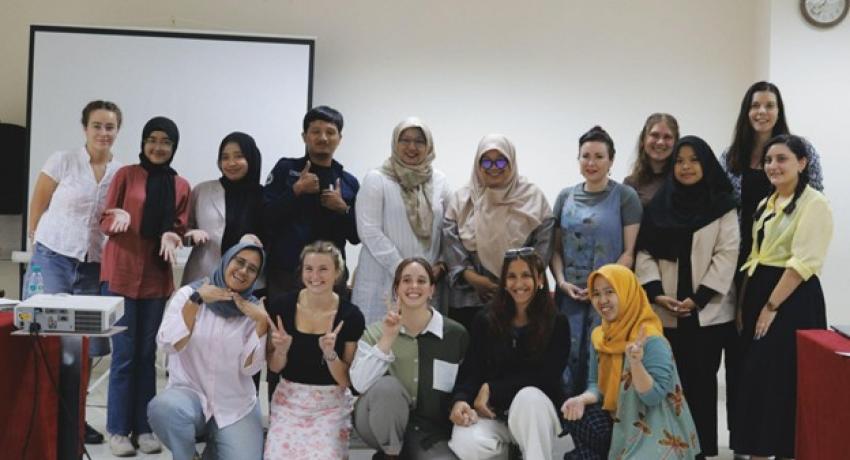In a world increasingly affected by climate change and unpredictable disasters, who would have thought that Indonesia would become a learning hub for a developed country like Australia? This is exactly what happened during the visit of the Western Sydney University (WSU) delegation to Universitas Negeri Yogyakarta (UNY) as part of a two-week program titled, (Poly)Crisis, Cross-Cultural Responses & Resilience. Entering the second week of their visit, the focus on Sustainable Development Goal (SDG) 6, Clean Water & Sanitation, became the theme for an in-depth cross-cultural learning experience that was full of surprises.
The eighth day of activities began with a public lecture by Prof. Yosi Septa Mutiarni, S.T., M.Sc., who presented on Water and Crisis: Navigating the Uncertain - Yogyakarta’s Pathways to Community Resilience in a Multi-Hazard Region. In this session, Prof. Yosi discussed disaster management efforts in Yogyakarta, particularly on volcanic eruptions, earthquakes, and floods, which often affect the availability of clean water.
Following the lecture, Dr. Nurul Khotimah, M.Si. led a workshop on flood mitigation practices at UNY. Participants from WSU attentively observed how UNY systematically and practically manages water-related risks. Interestingly, while UNY initially hoped to learn from Australia about water management and disaster mitigation, it was the WSU delegation who expressed their desire to learn from UNY. “We are truly impressed with how UNY and the people of Yogyakarta have integrated water mitigation and conservation principles into everyday life. We actually want to learn a lot from you,” said one WSU representative.
The collaborative session continued with a discussion forum that brought together UNY and WSU students in cross-cultural groups. The first topic of discussion, “How do you brush your teeth?” seemed simple, but it carried significant meaning. Through sharing stories about daily routines, participants learned about cultural differences, water usage habits, and the importance of water conservation awareness at the most basic level.
The second discussion topic addressed the shared water crisis faced by both countries, covering issues like flooding, stagnant water, and the diseases caused by it, as well as its impact on local communities and the environment. The conversation also touched on the connection between water conservation and cultural values, such as the spiritual ties of Indigenous communities in Indonesia to their ancestral lands, as well as conservation efforts by Aboriginal communities in Australia. The issue of water industry practices, such as water exploitation in sand mining areas near volcanoes and plastic waste from bottled water, further enriched participants’ critical perspectives.
More than just an academic activity, the day served as a powerful symbol of two-way learning and equal collaboration. Through the exchange of perspectives, UNY and WSU demonstrated that knowledge is not about who is more advanced, but about who is more open to learning. And in the face of global crises, the willingness to learn from the ‘unexpected’ becomes the strongest form of resilience.





